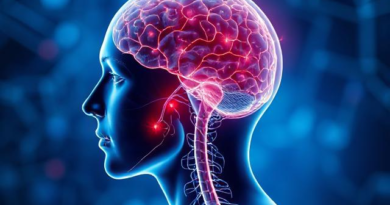Is Red Wine Good For Alzheimer’s Patients?
It is a prevalent myth that Alzheimer’s disease principally results of old age but the fact is, it can increase with age and old page people suffer from it, but there is no scientific evidence that the disease is a part of old age. There are many pieces of research going on about resveratrol, a strong antioxidant, which is believed to be the best source of antidote for Alzheimer’s disease, cancer and diabetes and other conditions. The chemical is mainly found in grapes, chocolate and red wine and upon consumption in regular dosage for an extended period of time, clinically proved that it may actually have slowed down the progress of these diseases.
There has been research conducted in the U.S. on an experimental pill of resveratrol where researchers found that subjects who took four pills a day for a year had a significant increase of amyloid-beta proteins in their spinal fluid than those who took a placebo pill. The research proved that the amyloid-beta circulating in the body from the brain was the main reason for the improvement of Alzheimer’s disease.
Research of Resveratrol on Alzheimer’s Disease
There are certain limitations of this research because it was not conducted on a large scale plus there was not enough evidence that resveratrol actually lowered amyloid-beta plaques in the brain and circulated through the spinal fluid.
There are however positive sides to the research, which shows that subjects who took the resveratrol could experience improved cognition. They could markedly improve in their day-to-day work, maintaining their cognitive functions easily. Nevertheless, it was not just medicine but diet, exercise and social and psychological stimulation that helped to eliminate the declining capacity of cognitive function of the brain.
Myths about Alzheimer’s Disease
Loss of cognitive function is not a natural process of aging. Alzheimer’s disease is not natural dementia, or occasional memory loss or malfunction of brain cells. It is a serious effect, quite independent of old age syndromes. It is often difficult to diagnose Alzheimer’s disease with memory loss but gradually with progression, it is a cause of concern.
Alzheimer’s disease is not normal and can be fatal if not treated properly. It gradually destroys the brain cells and changes the memory. It gradually changes the psychology of a person and people forget to connect, eat, talk, walk and even forget the very basic things of their own.
Flu shots do not have anything with Alzheimer’s disease. Several researches proved that vaccinations or flu shots do not trigger the accumulation of protein amyloid-beta in the brain.
Is Red Wine Helpful in Alzheimer’s Disease
The relationship between red wine and Alzheimer’s disease has been a topic of interest for researchers and wine enthusiasts alike. Rich in antioxidants like resveratrol, it may offer neuroprotective effects, though findings remain nuanced.
Polyphenols and Resveratrol: Red wine contains polyphenols, including resveratrol, which have antioxidant properties. These compounds are thought to potentially reduce the risk of cognitive decline by combating oxidative stress, a factor in Alzheimer’s disease.
The French Paradox: The lower rates of heart disease and cognitive decline in France, despite a diet high in fats, have been partially attributed to red wine consumption, leading to the term “French Paradox.”
Moderate Consumption: Observational studies suggest 1-2 glasses daily correlate with a 23% lower dementia risk, per a 2020 Journal of Alzheimer’s Disease review.
Inflammation: Polyphenols in red wine may combat brain inflammation, potentially slowing cognitive decline.
Risks: Excessive alcohol intake increases dementia risk, underscoring the importance of moderation.
Current Research Studies
A study from UCLA suggested that polyphenols in red wine could block the formation of proteins linked to Alzheimer’s plaques and reduce the toxicity of existing plaques.
Research from Iowa State University indicated that moderate red wine consumption might be linked to cognitive benefits, although high intake doesn’t equate to better health outcomes.
However, a sobering note from recent studies, including those from Georgetown University, shows that while resveratrol might stabilize certain Alzheimer’s biomarkers, the amount needed would be far beyond what one could consume through wine alone (equivalent to thousands of bottles daily).
A 2023 Frontiers in Nutrition study highlighted resveratrol’s role in enhancing synaptic plasticity in mice. However, human trials, like a 2022 clinical review in Nutrients, found inconsistent results, suggesting benefits may depend on lifestyle factors. Researchers are exploring concentrated resveratrol supplements, as the compound’s levels in wine are relatively low.
While red wine’s antioxidants show promise, experts caution against viewing it as a preventive measure. The Mediterranean diet, which includes moderate wine consumption alongside nutrient-rich foods, is more strongly associated with cognitive health. Further studies are needed to unravel red wine’s specific role in Alzheimer’s prevention, balancing potential benefits with alcohol-related risks. Always consult healthcare providers before altering dietary habits.
Get updates and read additional stories on the Health Orbit Fan Page.
For Guest posts, Sponsored posts and other details, please click ‘Contact Us’ page.




